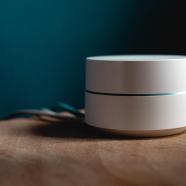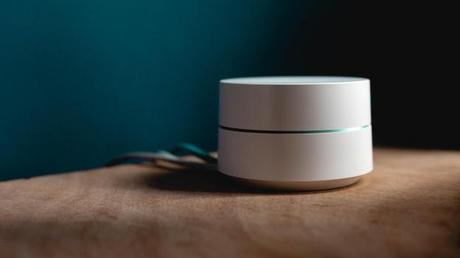
Tags
No, it's not just you our tech is getting smarter and smarter by the day. From apps that boil your kettle ready for when you step through the door, to pacemakers that can communicate with doctors, our world is becoming ever more connected and evolving at a phenomenal rate.
But what, if any, are the consequences of integrated technology and how can we harness if for good? Are there dangers to such a state and how best should we avoid them? In this blog post we look at all these things and more as we explore the Internet of Things.

Image from Pexels
IoTIf you've never heard of the IoT or the Internet of Things, then in simple terms it's how our integrated technology talks to each other. In our homes we have smart TVs, tablets, laptops and phones. We might also have a smart doorbell and Alexa-style entertainment system and so on.
If you are able to ask Alexa record your favourite show on Sky or have your heating connected to an App, then your technology is all part of the IoT. Your devices are able to send and receive data to and from each other. They're part of the same integrated system.
For the most part this is amazing, not to mention helpful and helps us run our lives with maximum efficiency. With Alexa reminding you of your doctor's appointment to your heating coming on at just the right time when you're out, ready to welcome you home to a cosy house, integrated technology works in our favour. Even our cars are in on the act, paired to our phones and able to send and receive data, filter phone calls and so on.
Outside the home the IoT has its place too. Think of the smart office where the lights automatically turn off if there's no one present, or the smart phone App that allows you access to your building in the morning. The possibilities and indeed the capabilities are endless. Governments too see the benefit of safeguarding electoral processes with automated voting or smartmatic systems.
For older and more vulnerable people the benefits are even more keenly felt. The IoT provides many practical solutions for helping people stay in their own homes for as long as possible and extend the idea of independent living.
Smart LivingImagine a home that's geared up entirely towards helping someone live independently with the aid of the IoT.
In terms of security you would benefit from interactive doorbells that allow a resident to not only speak to but see the caller from their mobile phone or tablet and they wouldn't even necessarily need to be in the house at the time. This secure system might also include an automated security box where callers could leave packages, opened and closed remotely by a resident at the touch of a screen.
Within the home, the IoT provides any number of features. Consider ambient temperature controlled exclusively by smart thermostats or lighting features which do much the same. For older people who require a little extra support, monitors and communication points could be installed and checked on by a caregiver, close enough to see what's going on daily but remote enough to avoid being overly intrusive.
Currently the IoT in this realm also includes fridges that send and receive data every time they are opened and closed, which can be fed back to a caregiver allowing them to see if a resident is eating regularly. There are devices that let you know you've left the cooker on for a long period of time and of course Alexa, who can be programmed to remind you to take medication or call a friend or relative.
But for all the advantages the IoT affords people who wish to live more independent lives while knowing help is only a shout away, there are some concerns. For a start, privacy. The sheer volume of data about a person's movements, their medical issues, health and so forth is enough to make you ask some serious questions. How will this data be used? Will it be sold and my emails bombarded with junk? Will I suddenly get cold callers on the phone or at my door?
SecurityThere's also the thorny question of security and this falls into two categories. First you have to ask how easy it would be for someone in a position of trust to access your data. Would it be the case that if they have access to one element of your personal data they could very easily get hold of more, bank details for example, especially if they're helping to set up automated payments for you. It's hard to see how you could best prevent agencies from getting hold of data except through strict screening and enforcing best practice guidelines.
The second, more pressing issue is that of hacking and how safe your devices are individually and collectively.
For devices that receive data only, a light bulb perhaps that can be programmed to turn on or off, how well guarded are they against being hacked? One of the biggest issues is that these kinds of nearly smart devices cannot be updated like your phone or computer to protect them against malware or a virus. They are only able to receive and are therefore, vulnerable.
But even with tech that does have a protected element, how safe really are our phones, smart speakers and so on and if they are all connected the risk of a virus being spread is surely even greater?
Naturally, part of the solution relies on the user. If you use any Apple products you'll always want to update it with the latest iOS version as quickly as possible. If you have Android devices you'll be able to download your own protective software. Make sure it's updated regularly and doesn't become a job on the list that never gets done.
If you do spot any unusual activity from your home based tech unplug it immediately and disconnect it from the network. The sooner that happens the greater chance you have of not spreading any nasty viruses to your other devices.
You might be using smart tech and AI in your workplace, in which case the potential risks come at a much higher cost. Again the key is staying vigilant and if you work in a field that is more attractive to hacker, the banking industry for example, you'll probably have more safeguards in place in any case. Should your spot anything that doesn't seem right, including something like a potentially harmful link in an email, report it immediately. If you're using Cloud-based office software chances are everything you have will be backed up but don't take any chances and always make sure your sensitive documents are stored off your hard drive in any case.
The Internet of Things is an incredible advancement in technology and is driving forward our lives in terms of the entertainment we engage with, the running of our homes, the way we do business and the way we can care for older and more vulnerable people without becoming overly intrusive.
For many of us, the ability to control our ambient temperature, our domestic appliances and our Sky box from afar is just fine and we've become so used to being able to do all of this that we give it hardly any thought. But we do need to start thinking about these things, more and more.
Hackers grow smarter as the technology grows smarter and come up with ever more ways to access our private data. While the IoT is exceptionally clever, it is also vulnerable and as such we need to make sure we are all protected from harm as much as we possibly can be.
Take a look around your home and figure out what falls into the category of smart tech and not so smart tech. Take some time to change the passwords for your network, your Apps, phone and laptop where you can, something you should do regularly in any case. While you may not be a tech whizz taking simple steps regularly can help in the battle against fraudulent access to your most personal information and sensitive data.
The FutureAnd then what? The IoT is growing and expanding at quite a rate and our lives will continue to be transformed by this incredible evolution of technology. Want to know if you need more yoghurts? Just use your phone to zoom in on your fridge's webcam and you'll know if you're making a detour on your way home. Looking for a parking space? Make use of the smart App that connects with town-wide CCTV cameras that can tell you where to head for that shopping trip.
The future is well and truly here and accelerating us forward every day. Make sure you're at the cutting edge and fully making use of the IoT, safely and conveniently. Watch this space for the next exciting moves into integrated technology.

